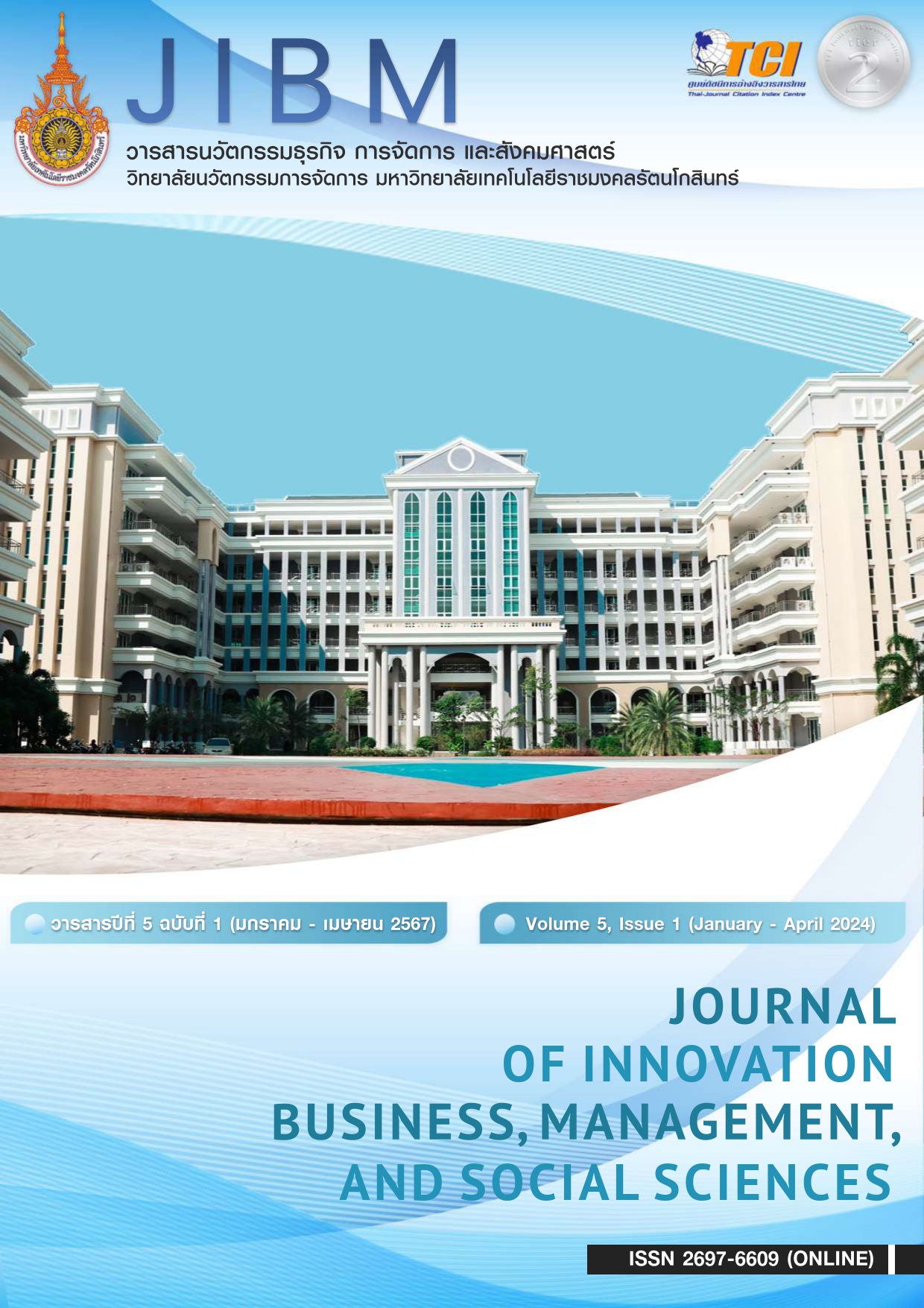The Effect of Green Bond on Cumulative Abnormal Return and Abnormal Trading Volume in ASEAN Countries
คำสำคัญ:
Green bonds, capital markets in ASEAN countries, cumulative abnormal return, abnormal trading volumeบทคัดย่อ
The purpose of this research was to study the impact of the issuance of green bonds on cumulative abnormal returns and abnormal securities trading volume in ASEAN. The data was collected manually through media websites at the time the company announced the issuance of green bonds. The data also included financial information and comparison amongst other listed companies that did not issue green bonds from 2017-2021. The research used Event Study to analyze whether there was any cumulative abnormal return or any abnormal trading volume before the issuance of green bonds and after that. Pearson and multiple regression were used to analyze these correlations. The study showed that the issuance of green bonds did not increase cumulative abnormal returns or decrease abnormal trading volume. Therefore, it can be concluded that companies willing to increase their positive image on society and the environment could issue green bonds without taking extra precautions on cumulative returns and securities trading volume.
เอกสารอ้างอิง
Baulkaran, V. (2019). Stock market reaction to green bond issuance. Journal of Asset Management, 20(5), 331-340.
Burlea, A. S., & Popa, I. (2013). Legitimacy theory. Encyclopedia of corporate social responsibility, 21, 1579-1584.
Cioli, V., Colonna, L. A., Giannozzi, A., & Roggi, O. (2021). Corporate Green Bond and Stock Price Reaction. International Journal of Business and Management, 16(4), 75-84.
Deegan, C. M. (2019). Legitimacy theory: Despite its enduring popularity and contribution, time is right for a necessary makeover. Accounting, Auditing & Accountability Journal, 32(8), 2307-2329.
Flammer, C. (2018). Competing for government procurement contracts: The role of corporate social responsibility. Strategic Management Journal, 39(5), 1299-1324.
Flammer, C. (2020). Green bonds: effectiveness and implications for public policy. Environmental and Energy Policy and the Economy, 1(1), 95-128.
Freeman, R. E., & Phillips, R. A. (2002). Stakeholder theory: A libertarian defense. Business ethics quarterly, 12(3), 331-349.
Harrison, J. S., Bosse, D. A., & Phillips, R. A. (2010). Managing for stakeholders, stakeholder utility functions, and competitive advantage. Strategic management journal, 31(1), 58-74.
Hoinaru, R., Benson, C., Stănilă, G. O., & Dobre, F. (2020). Green Bonds: Between economic incentives and eco-change. In Proceedings of the International Conference on Business Excellence, 14(1), 236-245.
Kuchin, I., Baranovsky, G., Dranev, Y., & Chulok, A. (2019). Does green bonds placement create value for firms?. Higher School of Economics Research Paper No. WP BRP, 101.
Sritong, N. (2021). ESG Bond New fundraising and investment trend Addressing Thailand's Sustainability. Retrieved from: https://krungthai.com/Download/economyresources /Economy.
Public Debt Restructuring and Domestic Bond Market Development Fund. (2020). Guidelines for Investment to support Green Investment Bond Market Development. Retrieved from: http://www.pddf.or.th/upload/article/file_200921095754.pdfResourcesDownload_669I
n_the_News_26_03_64.pdf.
Suchman, M. C. (1995). Managing legitimacy: Strategic and institutional approaches. Academy of management review, 20(3), 571-610.
The World Bank. (2015). World Bank Green Bond. Impact Report. Retrieved from: https://thedocs.
worldbank.org/en/doc/275171507751972339-0340022017/original/
reportimpactgreenbond2015.pdf.
Zhou, X., & Cui, Y. (2019). Green bonds, corporate performance, and corporate social responsibility. Sustainability, 11(23), 6881.



